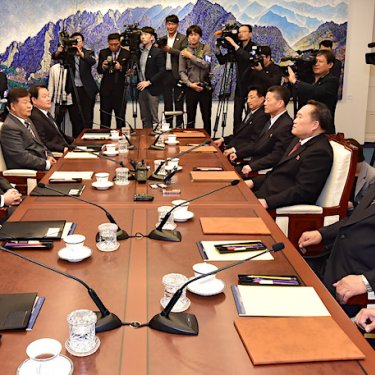Press freedom admits no exceptions, RSF tells South Korea

Reporters Without Borders (RSF) regrets the South Korean government’s decision to ban a journalist who is a former North Korean defector from covering the talks with North Korean officials that took place in the demilitarized zone between the two countries on 15 October. A democracy cannot compromise on press freedom, RSF said.
In apparent allusion to the sensitive nature of the talks, a spokesman for South Korea’s unification ministry said the ban, which was not requested by North Korea, was due to the “special circumstances.” He suggested that the presence of a reporter who is a former defector known for his hard-hitting articles might have upset the North Koreans and derailed the talks.
“Press freedom cannot admit any exceptions, and excluding a South Korean journalist because of their North Korean origin or trenchant reporting style is unworthy of the great democracy that is South Korea,” said Cédric Alviani, the head of RSF’s East Asia desk. “The South Korea authorities must take care not to repeat this dangerous precedent.”
After a dark decade for press freedom, South Korea saw a significant improvement last year and went from 63rd to 43rd in RSF’s 2018 World Press Freedom Index. Moon Jae-in, a former human rights lawyer elected president in May 2017, has pledged to ensure that South Korea will be ranked 30th by the end of his term of office.



